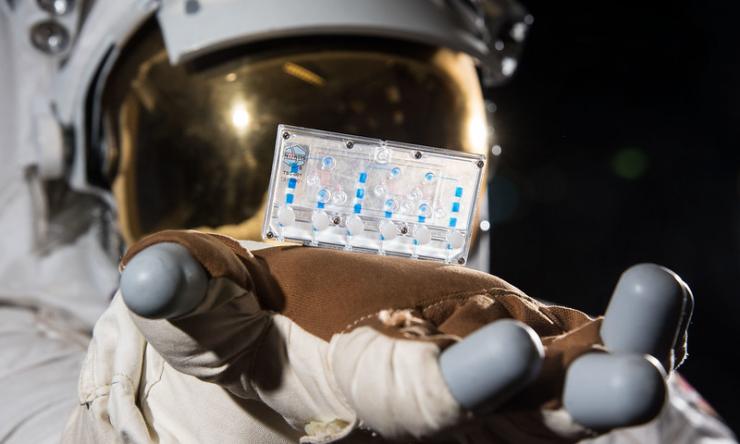Space health institute awards grants to mitigate the effects of space radiation
The Translational Research Institute for Space Health (TRISH) at Baylor College of Medicine selected five research teams to advance the study of space radiation and investigate countermeasures for deep-space exploration using human tissue/organ models.
TRISH funds health research and technology to protect astronauts during long-duration space missions. The crew headed to the moon or beyond will experience high galactic cosmic radiation (GCR) levels, which could endanger their health and the mission’s success.
“TRISH was looking for novel human-based approaches to better understand GCR hazards, in addition to safe and effective countermeasures,” said Kristin Fabre, TRISH’s chief scientist. “More than that, we sought interdisciplinary teams of scientists to carry these ideas forward. These five projects embody TRISH’s approach to cutting-edge science.”
The institute’s space radiation research project solicitation called for effective human-based complex models to study novel countermeasures against space-relevant ionizing radiation exposure. These models will simulate human tissues under radiation levels similar to future deep space explorers must endure.
This work could enable the space program to customize radiation countermeasures for each astronaut. Cultured tissue/organ models will be derived from blood donated by the astronaut and his or her response to space radiation and potential countermeasures could be assessed and customized accordingly reducing the risk to their physical health.
Selected projects are:
Michael Weil, Ph.D.
Colorado State University, Colorado
Effects of chronic high LET radiation on the human heart
Gordana Vunjak-Novakovic, Ph.D
Columbia University, New York
Human multi-tissue platform to study effects of space radiation and countermeasures
Sharon Gerecht, Ph.D.
Johns Hopkins University, Maryland
Using human stem-cell derived vascular, neural and cardiac 3D tissues to determine countermeasures for radiation
Sarah Blutt, Ph.D.
Baylor College of Medicine, Texas
Use of Microbial Based Countermeasures to Mitigate Radiation Induced Intestinal Damage
Mirjana Maletic-Savatic, M.D., Ph.D.
Baylor College of Medicine, Texas
Counteracting space radiation by targeting neurogenesis in a human brain organoid model
As a partner to the NASA Human Research Program, the Translational Research Institute for Space Health helps solve the health challenges to human deep-space exploration. The institute finds and funds disruptive, breakthrough research and technologies that can reduce risks to astronaut health and performance.
The institute is funded through a cooperative agreement with NASA to Baylor College of Medicine and includes consortium partners Caltech and MIT.
Sign up to be notified of future TRISH solicitation announcements.







 Credit
Credit


